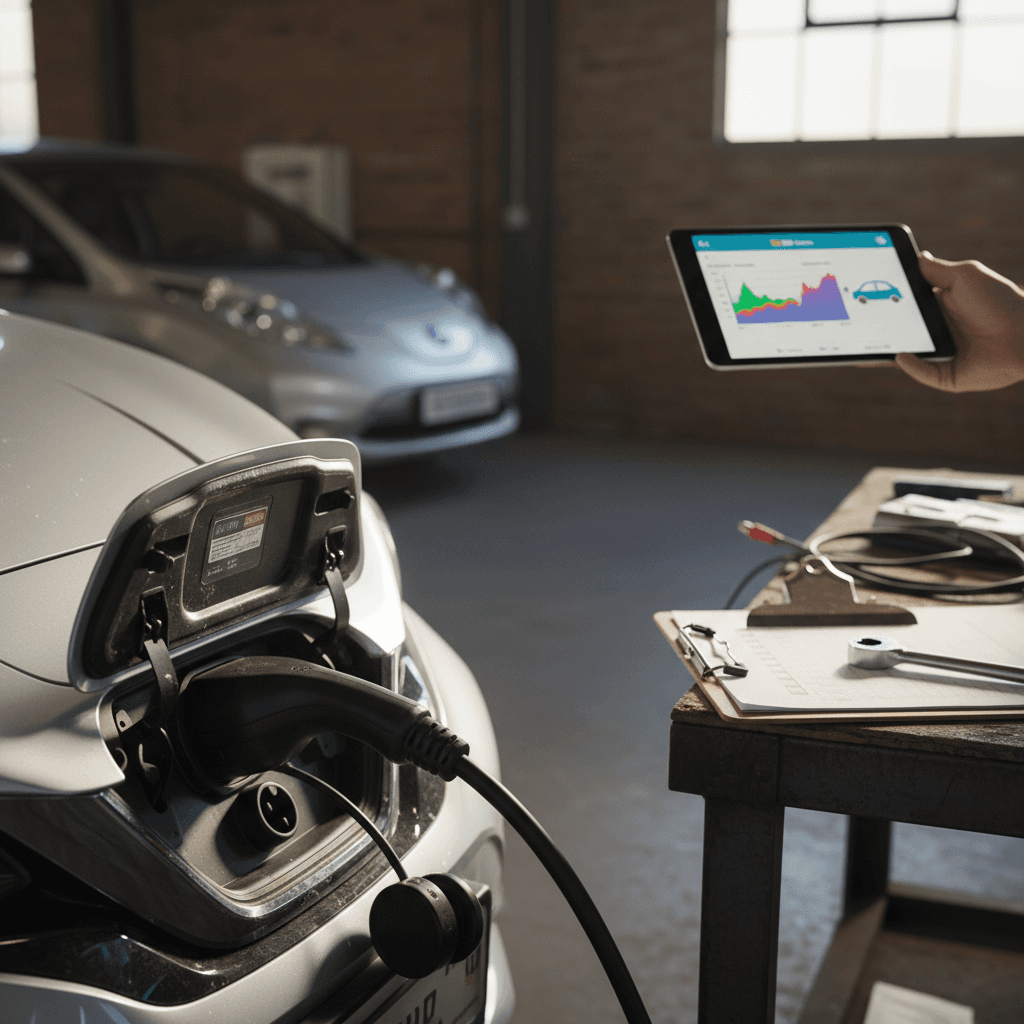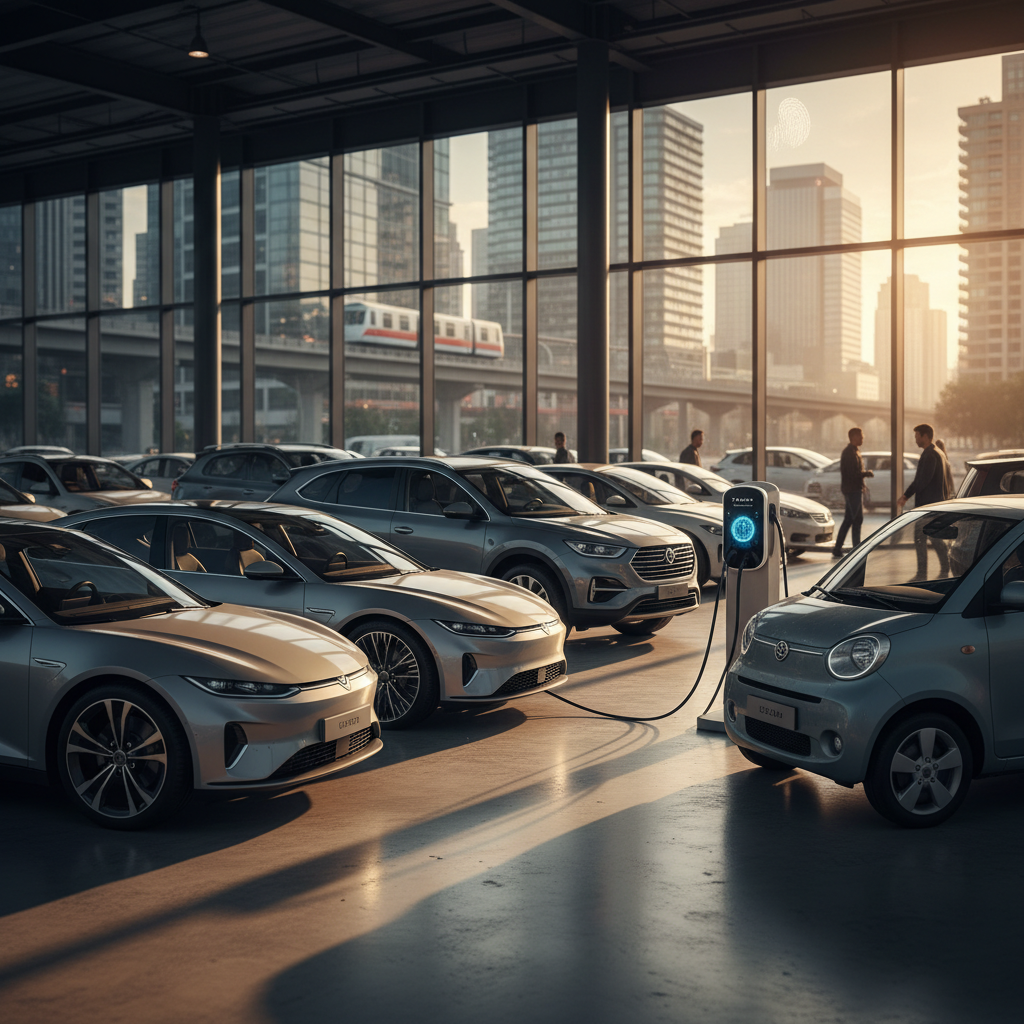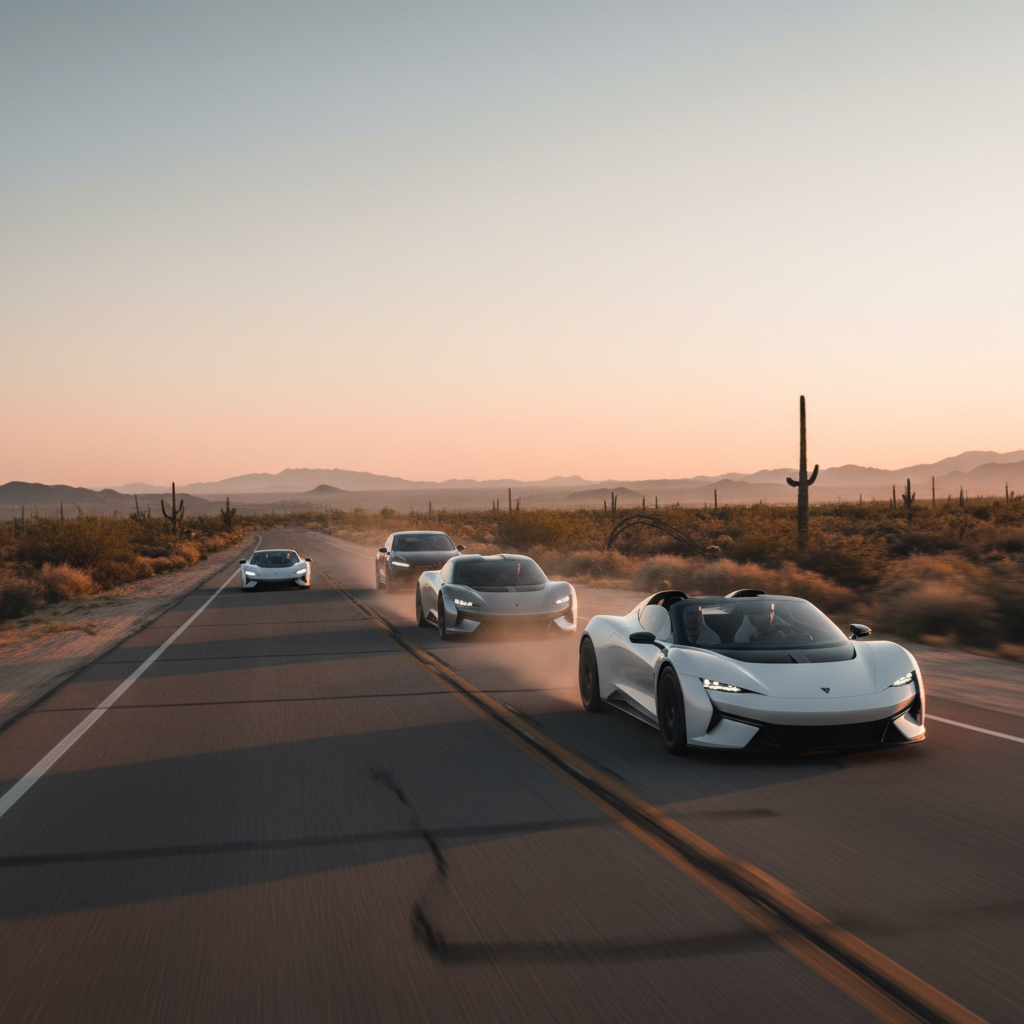When you ask, “What are good used cars right now?” you’re really asking three questions: Which cars are reliable, which ones are a smart financial move, and which ones will still feel good to live with three, five, even ten years from now. In 2025, the answer spans gas, hybrid, and electric, and the best choice for you depends on how you drive and how long you plan to keep the car.
Good Used Car = More Than Just Low Miles
What Makes a Good Used Car Today?
Before you chase specific models, it helps to define what a good used car looks like in 2025. Whether you’re considering a Civic, a RAV4 Hybrid, or a Tesla Model 3, the fundamentals are the same.
- Proven reliability from real-world data (not just first-year reviews).
- Reasonable depreciation, so you’re not catching a falling knife on value.
- Strong safety record and modern crash-avoidance tech where possible.
- Good parts availability and service support in your area.
- For EVs and hybrids: track record of stable batteries and power electronics.
- A history you can verify with service records, vehicle history reports, and (for EVs) a battery health report.
Gas and hybrid vehicles still lead the pack for sheer reliability, while EVs are maturing fast but can depreciate more sharply. That creates risk if you buy the wrong one, and opportunity if you buy the right one, especially used.
Good Used Gas and Hybrid Cars
If you just want something that starts every morning, doesn’t eat you alive on repairs, and quietly does its job, it’s hard to beat a solid gas or hybrid from Toyota, Honda, Mazda, or Subaru. Consumer reliability data in 2024–2025 continues to put Japanese brands at the top of the charts for trouble-free ownership.
Rock-Solid Used Gas & Hybrid Picks
These nameplates have earned their reputations the hard way: millions of miles in the real world.
Toyota Camry / Corolla / RAV4
Classic answers to “what are good used cars?” for a reason:
- Camry & Corolla: long-running engines, inexpensive maintenance.
- RAV4 & RAV4 Hybrid: family-friendly, efficient, and highly ranked for reliability.
Great if you want to keep the car 8–12 years.
Honda Civic / Accord / CR-V
Honda’s sweet spot is blending reliability with a little more driving feel.
- Civic & Accord: excellent drivetrains, strong safety ratings.
- CR-V: one of the safest bets in the compact SUV world.
Hybrids: Prius, Corolla Hybrid, Accord Hybrid
Full hybrids have quietly become some of the most reliable used cars you can buy.
- The Toyota Prius has a legendary durability record.
- Corolla & Camry Hybrid add efficiency to familiar platforms.
- Accord Hybrid combines comfort with serious mpg.
Watch the Turbo Toybox
Are Used EVs Good Cars? Yes, If You Buy Smart
Electric vehicles are a different animal. Surveys in 2024 showed EVs still report more problems on average than gas cars, mostly around electronics and new tech features, even as reliability improves year by year. That sounds scary, until you remember that buying used means someone else already took the big depreciation hit and lived through the early bugs.
A good used EV should offer three things: enough real-world range for your life, access to convenient charging (home or public), and a battery pack that’s aging gracefully. When you get those right, a used EV can be one of the most pleasant, low-maintenance cars you’ll ever own.

Why EV Depreciation Is Your Friend as a Buyer
Best Used Electric Cars to Shortlist
If you’re wondering what are good used cars specifically in the EV world, here are models that tend to deliver solid range and owner satisfaction, and have maturing reliability records. Exact prices will depend on year, mileage, and trim, but this will give you a direction.
Core Good Used EVs for Most Shoppers
These EVs strike a balance of range, usability, and value when bought used in 2025.
| Model | Why It’s Good Used | Typical Strengths | Things to Check |
|---|---|---|---|
| Tesla Model 3 | Benchmark compact EV sedan with strong demand and huge charging network access. | Long range, OTA updates, good value used. | Build quality, tire wear, battery and motor warranty status. |
| Hyundai Ioniq 5 | Spacious, comfortable, ultra-fast DC charging on newer models. | Family-friendly, good tech, road-trip capable. | Earlier software updates, tire wear, fast-charging behavior. |
| Kia EV6 | Sporty sibling to Ioniq 5 with similar fast charging. | Fun to drive, distinct styling, solid efficiency. | Alignment/tire wear, previous accident repairs, charging port condition. |
| Chevrolet Bolt EV / EUV | One of the cheapest used EVs with usable range; great city car. | Compact size, low running costs, easy to park. | Battery recall work completed, pack warranty, slow DC charging speed. |
| Hyundai Kona Electric | Underrated small crossover with good range for the money. | Strong efficiency, simple to live with. | Battery warranty status, any history of battery replacement, rear-seat space. |
| Ford Mustang Mach-E | Comfortable crossover with decent range and improving software. | Roomy interior, familiar Ford dealer network. | Software update history, fast-charging consistency, panel alignment. |
Always confirm battery condition and charging options on the exact car you’re considering.
The best used EV is the one that fits your daily life on its worst day, not its best. If it only barely covers your longest commute in August, you might hate it in February.
Used EVs That Can Be Great Buys Because of Depreciation
Some EVs fell off a depreciation cliff when new, high sticker prices, short range, or limited charging capability scared off second owners. Ironically, that can make them excellent used buys if your needs are modest and the price is right.
Depreciation Bargain EVs
Great if your driving is mostly local and you buy with your eyes open.
Nissan Leaf (2nd Gen)
The Leaf has been hammered by depreciation, especially early models with small batteries. That’s bad news for sellers, but fantastic if you:
- Mostly drive short city or suburban trips.
- Have access to home charging.
- Can live with 150–200 miles of real-world range.
Just be picky about battery health; Leaf packs don’t have active cooling.
Luxury EVs (Audi e-tron, Jaguar I-Pace, Porsche Taycan)
Big luxury EVs often lose a lot of value fast. If you find one with:
- Documented dealer service.
- Healthy battery and clean history.
- A price that undercuts comparable gas luxury cars.
…you can enjoy a lot of car for the money. Just budget more for tires, brakes, and out-of-warranty repairs.
Don’t Buy a “Cheap” EV Blind
How to Judge a Used EV’s Battery Health
With gas cars you worry about engines and transmissions. With EVs, the battery pack is the heart of the car. A good pack means years of quiet, low-maintenance driving; a bad one can wipe out the savings of buying used.
Essential Used EV Battery-Health Checks
1. Ask for a Battery Health Report
You want more than a dashboard guess. At Recharged, every car includes a <strong>Recharged Score Report</strong> with verified battery health so you know how much usable capacity is left.
2. Compare Rated vs. Real Range
Look up the original EPA range, then ask the seller what they actually see on their commute at different temperatures. A healthy pack should still deliver close to its expected range in mild weather.
3. Check Fast-Charging Behavior
If possible, plug into a DC fast charger. Does it ramp up quickly and hold reasonable speeds, or fall on its face? Odd charging behavior can hint at battery or thermal issues.
4. Review Software and Recall History
Many EVs have had important battery or charging software updates. Confirm recall work is complete and the car is running the latest recommended software for its pack.
5. Inspect the High-Voltage System Visually
Look for signs of collision damage near the battery, orange high-voltage cables, or underbody scrapes. EVs are heavy; a big curb hit can do more damage than you think.
Where Recharged Fits In
Price Brackets: What Are Good Used Cars by Budget?
“What are good used cars?” means something different at $15,000 than it does at $35,000. Here’s how to think about it by price range in late 2025 in the U.S. market.
Under $15,000
- Gas: Older Toyota Corolla, Camry, Honda Civic, Mazda3.
- Hybrids: High-mileage Prius can still be a workhorse if maintained.
- EVs: Early Nissan Leaf, Chevrolet Spark EV, older Fiat 500e in CARB states.
Focus on maintenance history and rust. At this budget, condition trumps everything.
$15,000–$25,000
- Gas/Hybrid: Newer Corolla, Civic, RAV4, CR-V, Prius, Accord Hybrid.
- EVs: Many Chevy Bolt EVs, newer Leaf, early Tesla Model 3, Hyundai Kona Electric.
This is a sweet spot for getting a newer platform without first-owner depreciation.
$25,000–$40,000
- Gas/Hybrid: Nearly-new compact SUVs, loaded sedans, plug-in hybrids.
- EVs: Well-equipped Model 3, Ioniq 5, EV6, Mustang Mach-E, some three-row EVs.
Here you’re choosing between very recent gas/hybrids and nicely optioned EVs. Let your driving pattern decide.
Think Total Cost, Not Just Purchase Price
Checklist: How to Shop for a Good Used Car (Any Fuel Type)
The best models in the world can still be bad buys as used cars if they’ve been neglected or crashed. Use this quick checklist to stack the odds in your favor, whether you’re buying from a neighbor or browsing EVs online at Recharged.
Universal Good-Used-Car Checklist
Clarify Your Real Needs
List how you actually drive: daily miles, parking situation, road trips, weather. That will tell you whether a gas car, hybrid, or EV makes the most sense.
Set a Hard Budget (and Stick to It)
Include taxes, registration, insurance changes, and a small reserve for surprises. If you’re financing, consider getting pre-qualified, Recharged can help with EV-friendly financing options.
Run a Full Vehicle History Report
Look for prior accidents, title issues, frequent owners, and odometer inconsistencies. A clean title doesn’t guarantee a good car, but a messy one is a major red flag.
Get a Pre-Purchase Inspection
For gas and hybrids, find a trusted mechanic. For EVs, find a shop or platform (like Recharged) that understands high-voltage systems and can read pack data properly.
Test Drive Like You’ll Live With It
Drive on the highway and around town. Test braking, lane changes, parking, and, on EVs, charging features. Don’t rush this; you’re auditioning a long-term housemate.
Compare to Fair-Market Pricing
Use multiple valuation tools and, for EVs, factor in incentives and depreciation. Recharged uses market data to price used EVs fairly, so you’re not paying new-car money for old-car value.
Frequently Asked Questions About Good Used Cars
Good Used Car FAQs
Bottom Line: Good Used Cars in 2025
In 2025, the best answer to “what are good used cars?” isn’t just a list of model names. It’s the car that fits your life, with a proven reliability record, honest pricing, and, if it’s electric, a healthy battery. That might be a Honda Civic that just refuses to die, a Prius that sips fuel, or a used Tesla Model 3 that turns your commute into quiet, one‑pedal driving.
Start by being brutally honest about how you drive, then pick the fuel type and models that match. From there, sweat the details: history reports, inspections, and battery diagnostics. If you’d like a shortcut on the EV side, Recharged was built to make used EV ownership simple and transparent, with Recharged Score Reports, EV‑savvy support, financing, trade‑in options, and nationwide delivery. However you buy, remember: a good used car doesn’t just look great in the listing, it keeps earning your trust, year after year, mile after mile.



